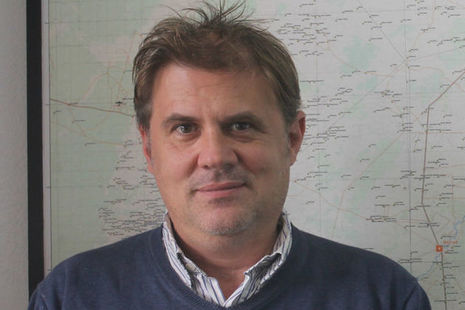Somali heroes at the Heart of UK humanitarian support

By Damon Bristow
Dr. Hawa Abdi dedicated her life to supporting vulnerable Somalis over three decades. It was a life of kindness and courage. Her clinics gave hope, as well as health, to more than two million people. On this World Humanitarian Day, I would like to start by paying a special tribute to her lifelong work.
Despite all the progress made in recent years, Somalia remains one of the most challenging environments in the world to deliver aid. Aid workers face real dangers. Far too many have lost their lives or been put in danger. This is a moment to remember those who have lost their lives in the line of duty. The targeting of aid workers is unlawful and all those in positions of responsibility have a duty to protect those that risk much in the pursuit of helping others. Despite the challenges, humanitarian workers in Somalia continue to ensure aid is delivered to those most in need, whoever and wherever they are.
This year’s World Humanitarian Day comes at a trying time with Somalis grappling with the effects of COVID-19, the ongoing desert locust invasion, flooding and conflict. These all come on top of the existing hardship faced by many.
SOBERING STORY
The statistics tell a sobering story. More than 5.2 million Somalis are in need of humanitarian aid and 3.5million of them are at risk of facing hunger. One in every six Somalis (about 2.7 million) are internally displaced, with 632,000 displaced this year. Flooding in the first half of 2020 has affected over a million people and destroyed road networks. It has paralysed the transportation of essential supplies and inundated thousands of hectares of farmlands.
As one of the leading donors to Somalia’s humanitarian, health and resilience programmes, we recognise that we need to respond and meet immediate needs, but also must strive to build longer term resilience. As many of our partners in Somalia know, this isn’t easy and will take time. We are all in this together and learning how we can deliver better aid in a more informed manner.
Through our £324m multi-year (2018-2022) integrated humanitarian and resilience programme (SHARP), we have provided cash transfers and livelihoods support for over 200,000 people, shelter and clean water to 34,000 and 145,000 people respectively. Through our health programme, we are providing lifesaving vaccines to 225,000 children under five, including health services to 275,000 people in 2020 alone.
Fadumo Bishar is one of tens of thousands who have benefited. She was surviving on credit and donations from NGOs. Through the SHARP programme, Fadumo and 18 others were helped to set up small-scale businesses in Hobyo town. They were given business skills, and cash grants of just $400. She was able to open a clothes shop and cover her basic needs.
We must work together to bring an end to the humanitarian crises that slows Somalia’s progress, and do everything we can to protect humanitarian workers from harm.
Somalis and Somali voices are at the heart of our support. We place growing importance on Somalis leading their own development. We work hard to make sure Somali voices are heard, from those in the communities we serve, to local authorities. Through a dedicated call centre, we reach thousands of Somalis every week to better understand their concerns and how UKAID can most effectively support their needs We aim to coordinate better our humanitarian, development and stabilisation work, making sure that all our efforts help Somalia on the path to self-sufficiency.
From 1 September, the UK’s Department for International Development will merge with the Foreign and Commonwealth Office, making a new department: the new Foreign, Commonwealth and Development Office. This will combine our development and diplomatic expertise to tackle challenges like those Somalia faces. Our commitment to spending 0.7% of GNI (gross national income) on overseas development remains firm.
We must work together to bring an end to the humanitarian crises that slows Somalia’s progress, and do everything we can to protect humanitarian workers from harm.
The UK remains fully committed to these aims. We look forward to continuing to work together with the Somali government, our partners and friends in Somalia to achieve these crucial goals. Dr Abdi put the Somali people first, and we will do our utmost to honour her legacy through our work today.
The author is the Somalia Country Director, Department for International Development